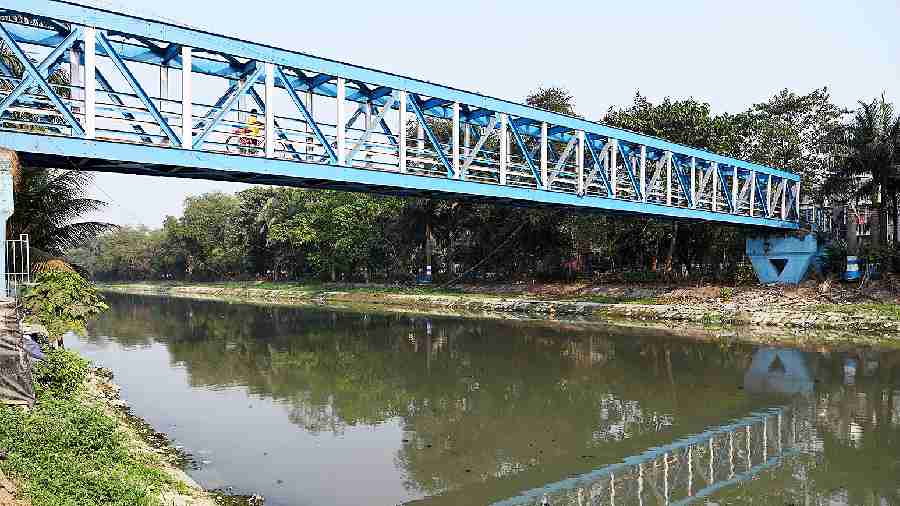Swarms of mosquitoes in Salt Lake and New Town are forcing residents indoors as the constant threat of bites has put paid to outdoor activities such as adda and board games.
Morning and evening walks, too, have become an activity for the very brave.
The owners and staff of cafés and other eateries in the twin townships are spraying mosquito repellents every 10 minutes to keep the winged creatures at bay and their patrons happy.
Although the city did not get much rain in the past few weeks, the number of mosquitoes has spiked sharply in New Town and Salt Lake.
Officials of the Bidhannagar Municipal Corporation said the stagnant water of the Kestopur canal and the Eastern Drainage Channel, which cut across Salt Lake and flow past areas off VIP Road such as Bangur Avenue, Lake Town and Baguiati, has turned into mosquito-breeding sites.
The officials also admitted that a shortage of larvicide that the civic body supplies to the 41 wards is to be partly blamed for the spike in the mosquito population.
“The water in these canals has turned stagnant and offers ideal conditions for mosquitoes to breed. To add to our worries, we are running short of larvicide and fresh orders are yet to be placed,” said an official of the civic body.
The situation is such that residents are keeping almost their entire body wrapped in clothing and rubbing mosquito repellant on the exposed parts before stepping out for morning or evening walk.
“We are keeping all our doors and windows shut. Besides, I apply insect repellant all over my arms, nape and neck to prevent being bitten by mosquitoes during my daily walk,” said Nayanika Majumder, a resident of SA Block in Salt Lake.
On Wednesday, The Telegraph spotted several pools of water, formed by water leaking from taps and flowing off roadside eateries, in Salt Lake and Sector V.
Mosquitoes were spotted buzzing over the water of the Bagjola and the Kestopur canals, as well as at multiple locations in Salt Lake and New Town.
In New Town, multiple residents’ welfare associations said they had asked their housekeeping staff to intensify vector-control activities.
Anjan Sen, a resident of Uniworld City in New Town, said they had instructed their housekeeping staff to spray larvicide around the complex at regular intervals.
An official of the New Town Kolkata Development Authority said their vector-control teams were spraying larvicide regularly to check breeding of mosquitoes.
Public health experts say controlling the mosquito population and destroying breeding sites are the best ways to prevent dengue and malaria, the diseases that are spread by mosquitoes.
An expert cited a few examples of what could be wrong in the two urban local bodies’ efforts to control the mosquito population.
“We have come across instances of vector-control workers looking for mosquito larvae during dry seasons and finding nothing. They should launch such drives after a spell of rain,” the official said.
Also, he said, an aggressive drive of spraying larvaecide should be undertaken after the monsoon.
“The possible sources of mosquitoes, such as clogged drains and canals, should be identified before the monsoon and cleaned up,” the experts said.
